Finding the perfect school for your child can be a stressful task. There are many things to consider. Looking over this list of pros and cons of Montessori will help you make an informed decision about your child's education.
One of the biggest questions you may ask yourself is, “Will this school prepare my child for adulthood?” The answer when it comes to Montessori School is a resounding, “Yes!”
The Montessori method of teaching sends students into the world with the skills to succeed, no matter what path they take. Here are a few ways Montessori education can give your child the best start in life.
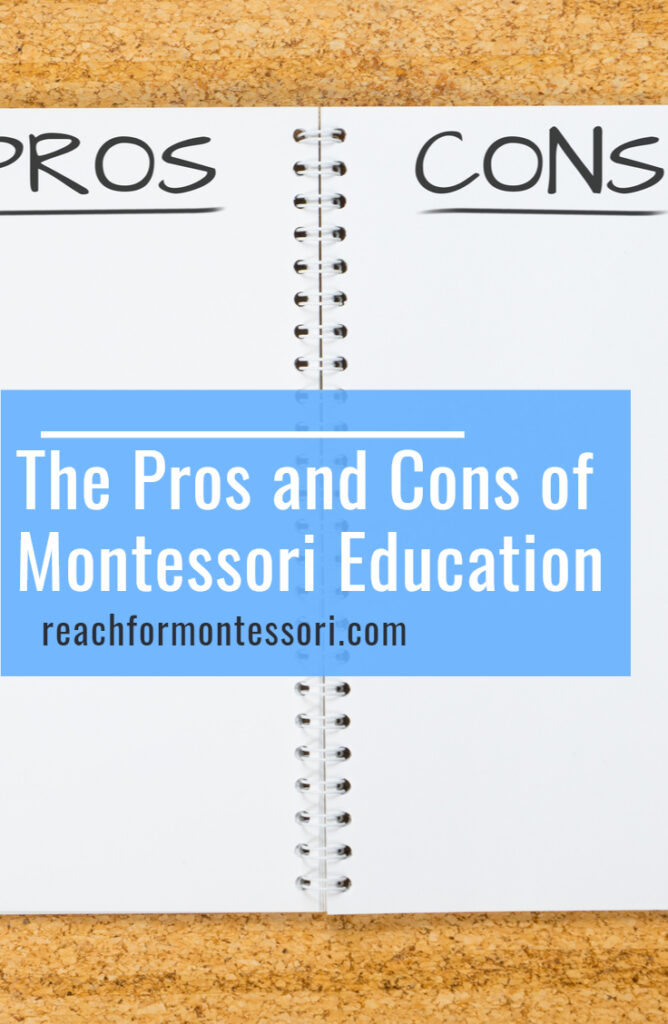
The Benefits of Montessori School
When weighing out the pros and cons of Montessori, you are more, no matter where your bias lies, to encounter more arguments for the benefits of Montessori schools than for the disadvantages of Montessori schools.
Independence and Self-Confidence
Children in Montessori schools are encouraged to accomplish tasks on their own. The materials used in the classroom are self-correcting, meaning children can work independently and learn from their mistakes, rather than from an adult hovering over them while they work.
When a particular bit of work has been mastered, teachers narrate the experience back to the child and mirror the child's emotions.
This helps avoid an over-excited response, which could lead to a confused student who doesn't understand, for example, why the teacher is so excited for another student whose work satisfaction happens to rely on congratulations from others.
When work is accomplished without the help of others, students foster a sense of self-confidence which grows stronger each time they work out a new problem on their own.
This self-confidence stays with students through adulthood, which makes for resilient adults who are willing to try bold new things.
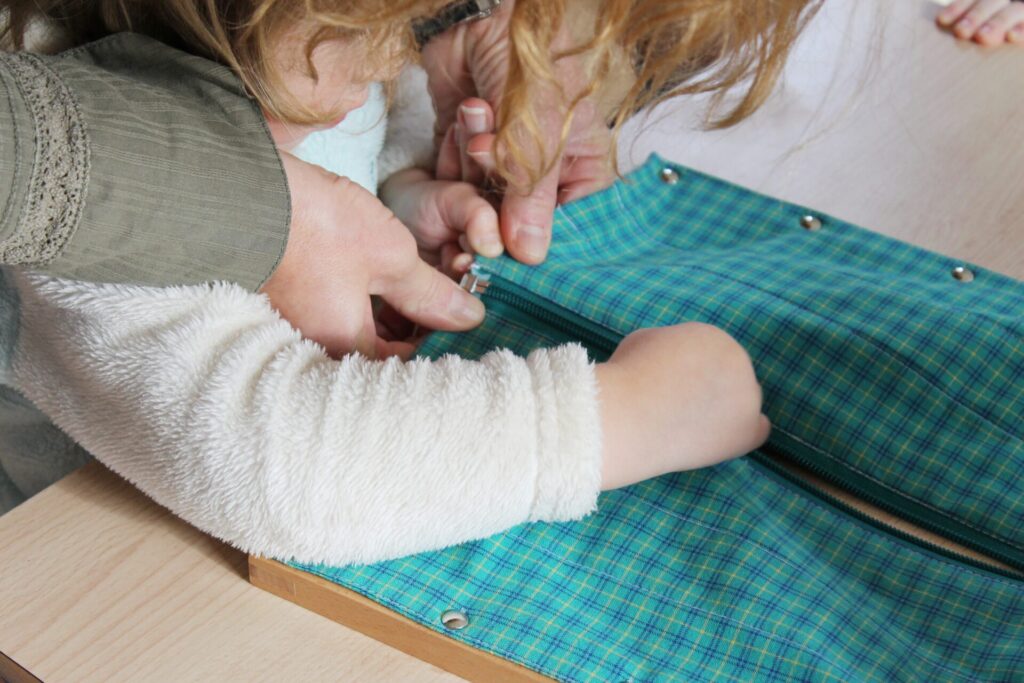
Grace and Courtesy
In Montessori schools, manners and respect are taught from an early age. Students are expected to be respectful of the work of others and to clean up after themselves.
“Please” and “thank you” are often-used words in a Montessori student's vocabulary, and children are taught to always consider the feelings of others. These things all go a long way in adult life.
A person who is able to consider the feelings of others and treat everyone with respect is much more likely to be respected themselves, and in turn, respected individuals are more likely to be successful.
Practical Life Skills
Every Montessori classroom incorporates life skills into their day. Some of these skills include self-care tasks such as dressing, washing hands, and brushing teeth.
Other skills involve the care of the classroom (or home) and include such tasks as cleaning windows, washing dishes, and sweeping floors. All of these tasks are useful in everyday life and give children a sense of belonging and pride.
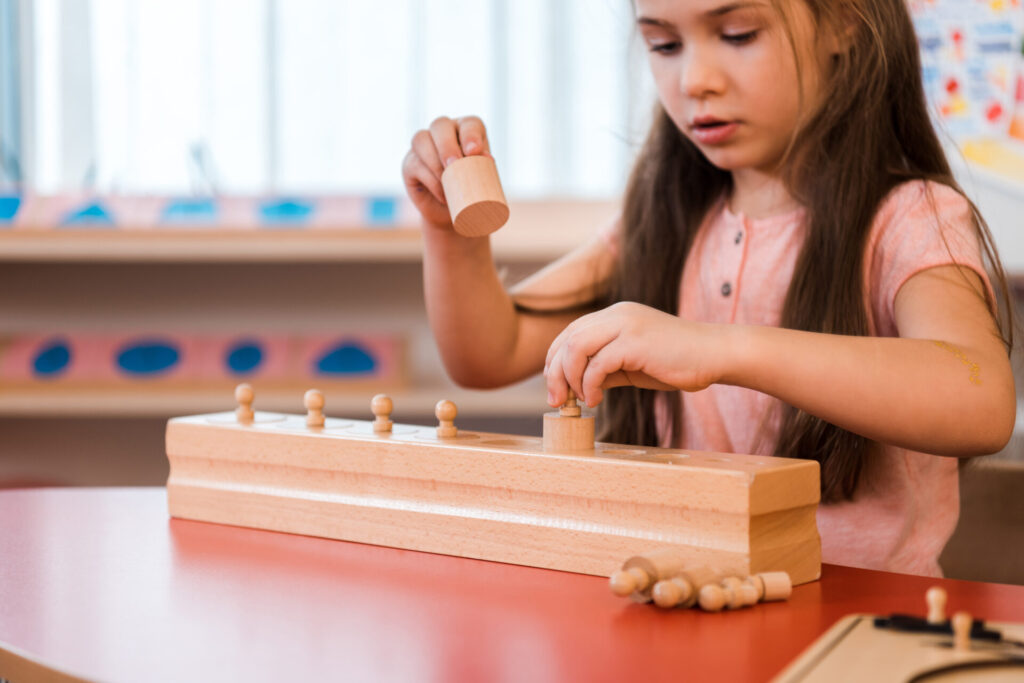
Self-Directed Learning
As mentioned above, Montessori students are encouraged to work and learn independently.
In this same vein, students are also expected to follow their own interests and learn at their own pace. They are never expected to learn the same things at the same speed as the person next to them.
This means Montessori students leave school with the ability to seek out and learn about what they are interested in. Because they are never forced to learn anything–particularly topics of no interest or use to them–they carry a love of learning with them throughout their lives and use the world as their classroom.
In addition to the benefits listed above, students of Montessori schools also acquire such skills as good time management and work ethic, excellent communication skills, and a personal connection with their work.
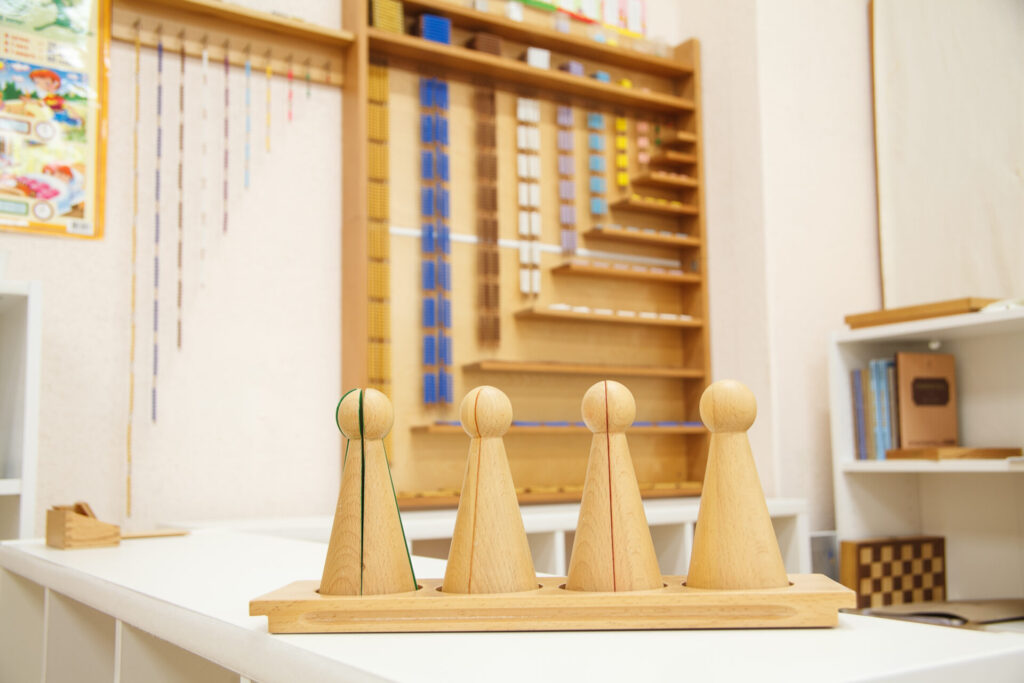
Mixed Age Classrooms
In Montessori mixed-age classrooms, the children work together on projects and create a well-rounded environment in which they can learn from one another.
Younger children have the chance to look ahead at the work of older kids and the older children get the chance to refine their skills and knowledge while assisting children that are newer to the classroom.
The disadvantages of Montessori schools
There are many common misconceptions and criticisms about Montessori. Many believe that it does not adequately prepare children for the team-oriented work environments they will encounter as adults.
This is, of course, false. We know that Montessori encourages teamwork throughout the curriculum.
There are a couple of valid arguments against Montessori schools that should be taken into consideration when looking over the pros and cons of Montessori.
Price and Accesibilty
It's no secret that Montessori schools often come with a hefty price tag. This has limited the access to Montessori education to primarily wealthy, white families.
Not only is this a problem, as it excludes many Black and Brown children from attending Montessori schools, but it discourages diversity and works in direct opposition to Dr. Montessori's cosmic education ideas.
It also creates a white-centered learning environment, which is not comfortable or welcoming to the incoming non-white students.
Luckily, Montessori schools, as well as schools with Montessori-like philosophies, are becoming more accessible to children of all socioeconomic, racial, and cultural backgrounds.
This is happening through Montessori initiatives in public schools, as well and charter and magnet schools. More and more free Montessori schools are cropping up all over the U.S.
Maria Montessori started her first school in an impoverished neighborhood and she saw the joy and potential in each and every child she observed. Many in Montessori education hope to revisit her vision.
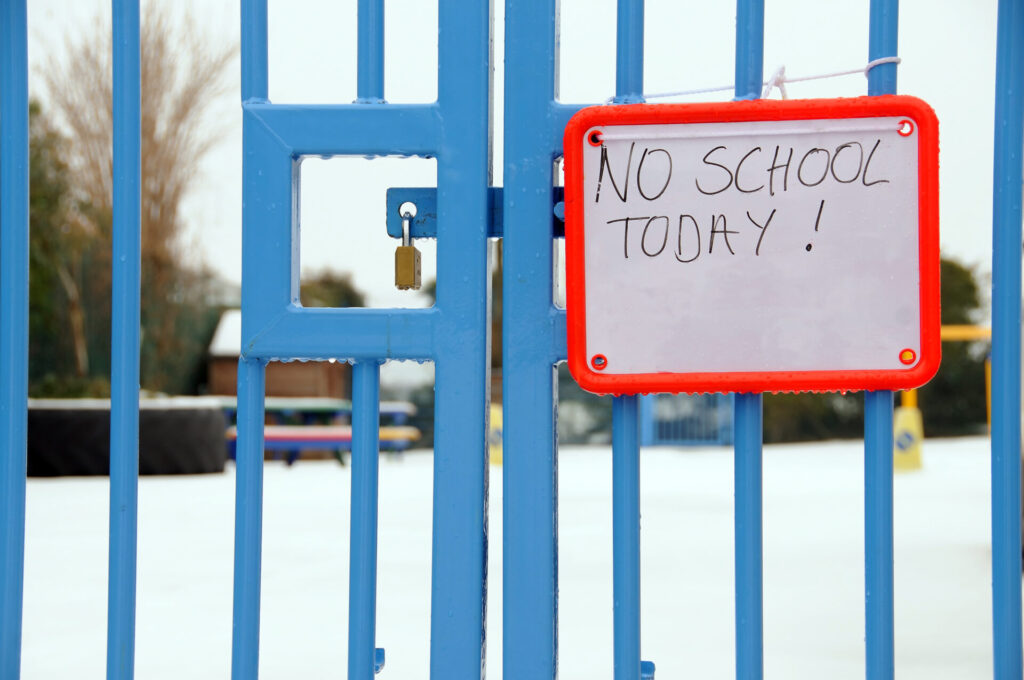
Not-so-Montessori schools
Montessori is simply the last name of the woman who created the Method of education. It's not trademarked.
Just as you will see toys and other items marketed as “Montessori”, you will also find that many schools use Dr. Montessori's name in their promotion.
Some of these schools and care centers couldn't be further from providing a Montessori learning environment. Also, many of them do not hold their staff to true Montessori standards when it comes to discipline and nurturing.
On the other hand, there are credentialed Montessori schools that do not properly adhere to the standards set by the Montessori governing bodies.
These schools are, in no small part, to blame for why so many people believe that Montessori is bad for children.
While the disadvantages of Montessori that are listed here don't directly address the Method of education itself, these are valid reasons that people are swayed from enrolling their children in Montessori programs.
What are the pros and cons of Montessori in your opinion?
Cheers and don't forget to subscribe!
